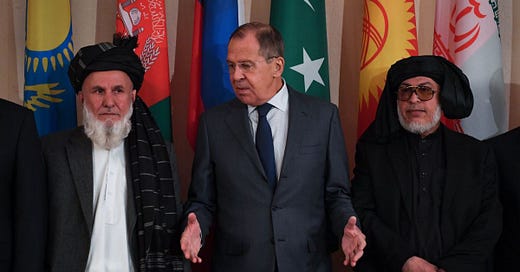Birds of a Feather Flock Together – Pariah of Global Finance, Afghanistan Turns to Russia.
Not sure if Russia has enough to help the Taliban though.
Politically illegitimate and not recognized by the international community, the Taliban in Afghanistan is cut off from the global banking and debt markets. Very few private banks and institutions are willing to lend money again to a regime whose members have been under sanctions for years for membership in a terrorist group.
A Ministry of Finance officia…
Keep reading with a 7-day free trial
Subscribe to Sylvain Saurel’s Newsletter to keep reading this post and get 7 days of free access to the full post archives.




